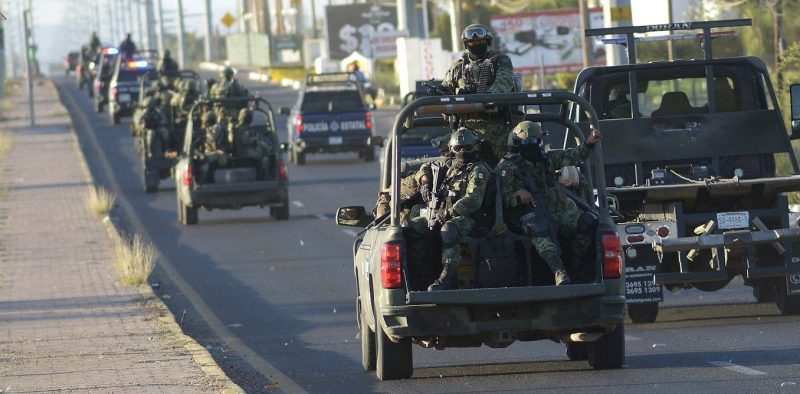
In mid-August 2025, the US administration announced Project Portero, a collaborative initiative with Mexico to dismantle drug smuggling corridors along the southern border. The DEA touted it as a bold new era of cross-border enforcement, promising relentless pursuit of violent cartels. However, this announcement was met with immediate and forceful denial from Mexican President Claudia Sheinbaum, who stated that no such agreement existed. This stark disagreement highlights the deep mistrust and conflicting approaches to tackling the drug trade that continue to plague US-Mexico relations.
The timing of the announcement is particularly sensitive, coming on the heels of unilateral US military strikes on Venezuelan boats allegedly involved in fentanyl trafficking. These actions, condemned by Venezuela as a military attack on civilians, further fueled Mexican concerns about US overreach and unilateralism. President Sheinbaum already faces a delicate balancing act, navigating negotiations with the US on issues like migration and tariffs while simultaneously protecting Mexican sovereignty. The prospect of US military intervention in Mexico, increasingly favored by US Republicans, only intensifies this precarious situation.
This current conflict echoes a long and complex history of US-Mexico cooperation (or lack thereof) in the drug war. My research, detailed in the forthcoming book “Policing on Drugs,” explores the complexities of this relationship from 1969 to 2000. It reveals how Mexico’s adoption of US punitive, often militarized, anti-drug policies, while seemingly aligning with US security interests, ultimately strengthened the coercive power of the Mexican state, exacerbated crime, and proved remarkably ineffective in curbing the drug trade. The Nixon administration’s “war on drugs,” and initiatives like Operation Intercept and Operation Condor, serve as stark examples of this complex and often counterproductive relationship. These operations, while ostensibly aimed at drug eradication, often prioritized US interests, ignoring the broader social and political consequences within Mexico.
The assassination of DEA agent Enrique “Kiki” Camarena in 1985 stands as a pivotal moment, highlighting the risks and the increasing role of undercover US agents operating within Mexico. This event, along with the signing of NAFTA in 1994, further escalated the militarization of drug enforcement on both sides of the border, leading to unforeseen consequences, including the surge in cartel violence witnessed in the early 2000s. The unintended consequences of this militarized approach are readily apparent in the pervasive violence and instability that continue to plague Mexico. The image of DEA agents operating in Mexico, while commonplace, remains a potent symbol of US overreach for many Mexicans.
President Trump’s actions, including the reported secret order authorizing military action against Latin American cartels and the designation of several cartels as foreign terrorist organizations, further escalate the tension. While Sheinbaum has made concessions, such as extraditing cartel members to the US, she has firmly rejected the idea of US military intervention, prioritizing Mexican sovereignty. The public announcement of Project Portero, given the fraught history of US-Mexico drug enforcement cooperation, arguably undermined its potential for success before it even began. The perception of US imperial overreach remains a significant obstacle to genuine collaboration in the fight against drug cartels, and the current situation suggests that the path to effective cooperation remains elusive.










